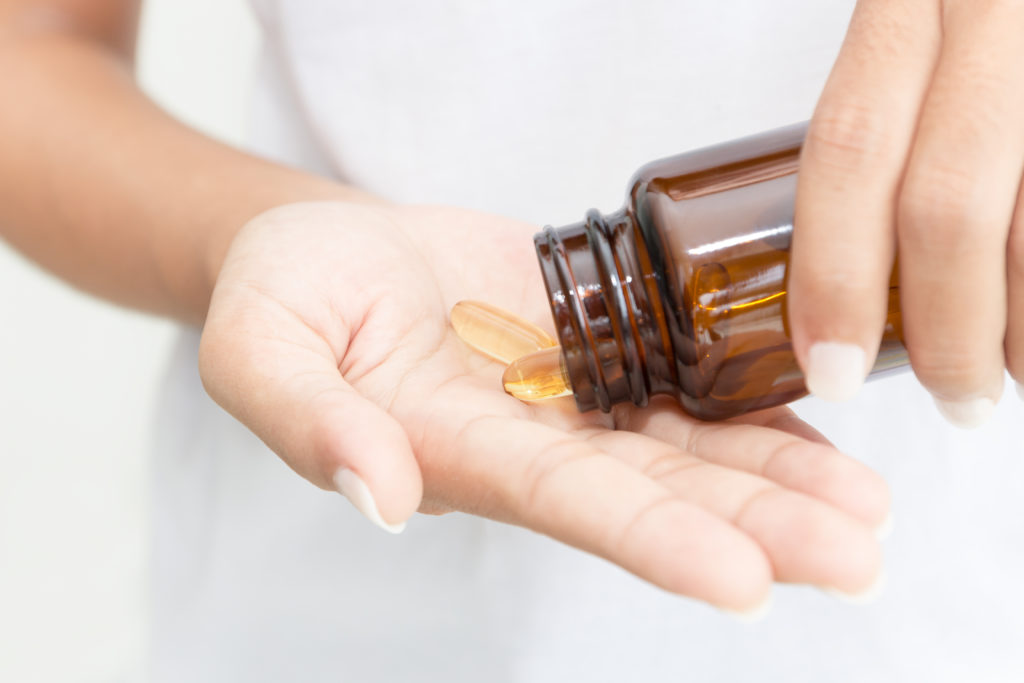We need to take in the Winter in fact, Vitamin D supplements?
Should we take in the Winter Vitamin D tablets?
Especially in the cold Season, many people resort to Vitamin D supplements. But how important is the additional income of the so-called “sunshine vitamin” in the Winter actually? According to experts, such means are only a very few people makes sense.
Inadequate Vitamin D supply in Germany
Studies have shown that the Vitamin D supply in Germany is insufficient. Not only adults but also many children and adolescents have decreased values. If, in fact, a lack of Vitamin D, taking nutritional supplements – according to medical clarification – in many cases. However, some people take such drugs without first study. This is not a good idea, experts warn.

No protection against chronic diseases
Some people take supplements because they think to do something Good for your health and preventing disease. The Stiftung Warentest indicates on their website that this is really useful.
Because scientists have evaluated in the last years, hundreds of studies on the question, whether Vitamin D protects against other chronic diseases and seem to have had no convincing effect.
Thus, for instance, in an earlier opinion of the German society for endocrinology, Vitamin D could reduce the risk for cancer, cardiovascular diseases, hypertension, and Diabetes mellitus type 2 probably.
Sunlight in the cold months is not enough
Vitamin D is also referred to as the “sunshine vitamin” because the human body makes it to about 80 to 90 percent under the influence of sunlight. The energy-rich UVB rays, which tan the skin.
However, every person is not equal to the amount of Vitamin D that depends on age, skin thickness, and skin type.
According to Stiftung Warentest, The sun is generally: no radiation in Germany is not sufficient from October to March for people to produce enough Vitamin D. However, it is not so that the skin produces in autumn and Winter, no Vitamin D.
“The body also makes some Vitamin D when you go in the Winter with the open face and no gloves on a daily basis for some time, about 20 to 30 minutes for a walk,” said the media spokesman of the German society for endocrinology, Professor Helmut treasure.
But, especially in the warmer months, soak up the sun. Because of the spring and summer sun for the Vitamin D-memory can easily fill up, because the body stores the fat – soluble Vitamin D in fat and muscle tissue and the liver.
This stock is usually sufficient to come without deficiencies about the dark time of the year.
On the diet, only a small part of the need can be cover
As the Stiftung Warentest writes, food is only a small part of the Vitamin D needs, around ten to 20 per cent. Thus, there are only a few foods significant contain a lot of Vitamin D.
By far the most fish such as salmon and herring is in Bold. To a much lesser extent, liver, egg yolks, and some mushrooms, such as chanterelles and Champignons Vitamin D. provide
Who radiation because of the lack of sunlight in the winter months, low Vitamin D levels, according to health experts, where appropriate, on a dietary Supplement.
However, pills with Vitamin D are not for all people is advisable, as experts of the chamber of pharmacists of lower Saxony warned.
In principle, should not be taken to much of it. Because according to the drug Commission of the German medical Profession (AkdÄ) may lead to Overdose with Vitamin D preparations.
The problem is that many of these products are recommended as a investigation on behalf of “Öko-Test” has shown.
Food Supplement for at-risk groups
“Healthy, active people are unlikely to benefit from Vitamin D preparations,” writes the Stiftung Warentest. “In certain at-risk groups, they may be useful.”
This includes people 65 and older, because many of the people of this age, the ability of the skin is reduced to form Vitamin D. In part, it produces only half as much Vitamin D as in previous years.
Also younger people due to the disease, only rarely in the fresh air, can use after consulting with a doctor on Vitamin D supplements.
Under these conditions, the Foundation classifies test such means is deemed to be suitable for the prevention and treatment of osteoporosis.
Also certain other disorders of Vitamin D pills can be useful: So can the small intestine the absorption of Vitamin diseases affect D from the intestine.
Also, chronic liver disease, renal failure, parathyroid, weakness, or certain medications such as Anti-epileptic drugs, the Vitamin can interfere with-D-education.
Vitamin D supplements never on suspicion of taking
In addition, the Foundation of children’s health recommends, in Accordance with scientific organizations of children and youth physicians:
All babies in Germany should get from the first week of life until the second experienced early in the summer, so depending on the time of birth for a period of one to one and a half years, in addition to breast milk or baby food tablets or drops daily 400 to 500 units of Vitamin D 3 prescribed by a doctor.
The Vitamin D supplementation should be combined with the fluoride-prophylaxis against caries. Early weight born with a birth less than 1,500 grams should be given in the first months of life daily a higher dose of 800 to 1,000 units of Vitamin D.
Basically it is: “Vitamin D supplements should not be to suspected taken. Recommend only when inadequate care by a physician, it has been demonstrated,“ said Antje Gahl of the German nutrition society (DGE).
The physician then determines the current Vitamin D Status. However, the Insured can get by law, this blood test only in cases of justified suspicion of a deficiency reimbursed, such as in osteoporosis.
The doctor and the Patient have to decide in the individual case, whether the Test is useful. Usually, patients will bear the cost of investigation of about 20 to 30 Euro. Also for the Vitamin D preparations, health insurance companies pay only in exceptions. (ad)


